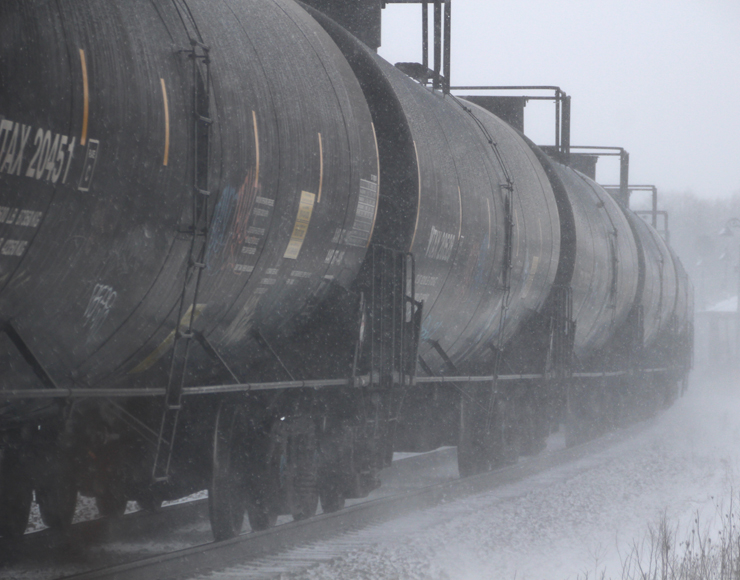Canada’s Minister of Transport, Marc Garneau, has announced new orders restricting speeds of trains transporting hazardous materials, and updating rules regarding track safety and inspections.
The first of the three ministerial orders issued Friday replaces temporary rules issued on Feb. 6 in response to a Canadian Pacific derailment and fire [see “Canadian government orders speed restrictions for trains with hazardous materials,” Trains News Wire, Feb. 6, 2020] and updated on and updated later that month [see “Trains News Wire Digest for Tuesday, Feb. 18.”] It sets speed restrictions similar to the temporary rules it replaces, but adds a new set of speed limits for winter months.
From March 16 to Nov. 14, “Higher-risk key trains,” with crude oil or liquefied petroleum gases in blocks of 20 or more tank cars, or 35 or more cars total, are limited to 30 mph in metropolitan areas and 50 mph elsewhere. From Nov. 15 to March 15, such trains are limited to 25 mph in metropolitan areas or in unsignaled territory, 40 mph on signaled trackage outside of metropolitan areas (or 30 mph when the temperature is minus-25 degrees Celsius or lower). “Key trains,” those carrying one or more loaded tank cars of commodities that are toxic by inhalation or 20 or more tank cars of dangerous materials, are limited to 35 mph in metropolitan areas and 50 mph elsewhere, year-round.
Additionally, railroads are ordered to revise track safety rules in a three-phase process to address training of track inspectors, inspection frequency, and automated track inspection; set rules on management of welded rail, rail wear, and track geometry; and establish requirements for concrete ties, inspection of yard tracks, and file copies of company standards with Transport Canada. There are deadlines of April 1, 2021, Oct. 1, 2022, and April 1, 2022 for each of the three phases.
“Rail safety remains my top priority,” Garneau said in a news release, “and the Government of Canada is continuously looking for ways to make our railway system even safer for Canadians. I recognize that railway operations in Canada are carried out in a highly complex and difficult environment, but I believe that a strong response is warranted after the series of derailments of trains carrying crude oil. The measures are being implemented to reduce main track derailments and encourage safe railway operations.”
The new orders will remain in place until new permanent rules are approved.


